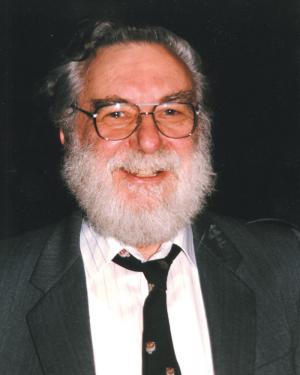Chairman 1979-2003

B.A., Psychology, Emory University, 1949
M.A., Psychology, Emory University, 1950
Ph.D., Biochemistry, Emory University, 1957
Post Doc., Biochemistry, University of Minnesota, 1957-59
Combining expertise in physiology, endocrinology, pharmacology, nutrition, genetics, and computer modeling, Ulie Seal made his life's work the preservation of the planet's biodiversity. A biochemist by training, Ulie spent the better part of his career as a scientist researching prostate cancer at the Veteran's Administration Medical Center in Minneapolis. During this time, he became intensively involved with endangered species conservation, founding Species360, a global, central database that provides computerized animal management for more than 500 cooperating zoological institutions worldwide.
Ulie served as chairman of the Conservation Breeding Specialist Group (CBSG) from 1979 to 2003. (CBSG is one of about 125 specialist groups, all belonging to the Species Survival Commission, one of the six commissions of the IUCN - The World Conservation Union) He published more than 260 peer reviewed journal articles; and 70 book chapters and reviews. Ulie received many honors including the AAZPA Marlin Perkins Award (1991), the Chicago Zoological Society's Presidents Award (1992), the Zoological Society of Antwerp's Gold Medal (1993), Emory University's Emory Medal (1993), the U.S. Fish and Wildlife Service Great Lakes-Big Rivers Region Silver Eagle Award (1994) the first Heini Hediger award of the IUDZG (1996), the SSC’s Peter Scott Award for Conservation Merit (2002), the San Diego Zoo’s Conservation Medal (2002), and the North of England Zoological Society’s Gold Medal (2002). In addition, 2 awards have been created in Ulie’s honor: CBSG’s Ulysses S. Seal Award for Innovation in Conservation (2002), and SEAZA's Ulie Seal Award (2003).
Ulie passed away 19 March 2003 from a battle with cancer. Well-known throughout the world, Ulie conducted more than 200 CBSG workshops in 60+ countries during his time at CBSG. These workshops involved more than 6,000 participants, many of whom have gone on to make conservation contributions of their own.
Back to History


